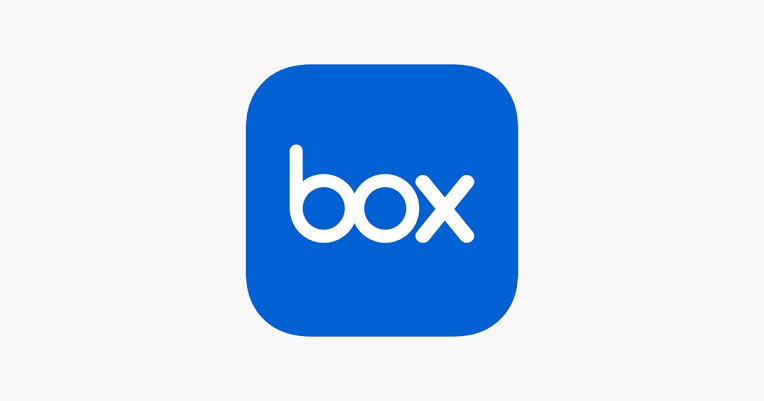Today, with the advancements in storage technology, storing large files on our local devices has become quite manageable. However, when it comes to sharing these massive files with others, it can be quite a hassle. That’s why here on Naijaknowhow, I’ll be writing about the best file hosting apps for smartphones.
File hosting sites are essentially online platforms that offer virtual storage space for various types of files. They allow you to store your files on the cloud, making them easily accessible from anywhere. The convenience comes in the form of a single URL that you can share with others to grant them access to your files.
In addition, many of these file hosting apps or sites provide direct download links. These links lead users directly to the download page, eliminating the need for complex navigation. What’s even better is that a majority of these services offer a free storage limit when you sign up. Below is a list of some of the finest options to take advantage of.
List of the Best File Hosting Apps for Android and iOS
1. Google Drive

Google Drive is one of the most popular file hosting apps for storing files online. In the past, it used to offer unlimited storage for files, but now it has a limit of 15 GB. The great thing about Google Drive is that you can access your files from any device as long as you have a Gmail address.
Additionally, Google Drive allows you to share your files by creating links. These links can be customized, and you can choose who can access them, whether it’s a specific group of people or anyone on the internet.
Finally, it’s worth noting that Google Drive has a download bandwidth of 500 GB, which means you can download a significant amount of data at once. This makes it a versatile tool for both personal and professional file management.
Pros:
- Cross-device accessibility with a Gmail address.
- Customizable file sharing through link creation.
- Versatile for personal and professional file management.
- 15 GB free storage.
- Download bandwidth of 500 GB.
Cons:
- Limited storage compared to previous unlimited offering.
- Dependency on a Gmail address for access.
- Not ideal for users needing more than 15 GB.
2. MEGA

MEGA is a cloud storage service that takes your privacy seriously. It lets you store your files securely in the cloud, and only your devices can encrypt and decrypt your data, not MEGA. You can upload, manage, and access your files from anywhere using web browsers or mobile apps.
You can even share folders with your friends and collaborate in real time. It’s crucial to remember your password and keep your Recovery Key safe because MEGA can’t help you recover your account if you lose them. MEGA also offers an encrypted chat feature for private communication, including video and audio calls.
Your chat history syncs across multiple devices, and you can easily transfer files to and from your MEGA cloud drive. Plus, you get 20 GB of free storage, and you can earn more through their achievements program. If you need extra space, they have affordable subscription plans with even more storage.
Pros:
- End-to-end encryption ensures enhanced privacy.
- Seamless file access across various devices.
- Collaboration feature and encrypted chat.
- Generous initial storage offering.
- Affordable subscription plans for additional storage.
Cons:
- Need to remember password and safeguard Recovery Key.
- Limited account recovery options if password or key is lost.
- Free storage may be insufficient for some users.
3. Dropbox

Dropbox is one of the file hosting apps that’s been around for quite a while. It’s managed to stay popular among other similar services, boasting an impressive 600 million users. With Dropbox, you can easily share content with your friends by generating hot links.
What’s great about Dropbox is that it has a user-friendly interface, so it’s simple to navigate and use. However, there’s a catch when it comes to storage – you’re initially limited to just 2GB of space per account. But don’t worry, if you need more storage, you can always purchase additional space.
Pros:
- User-friendly interface.
- Seamless content sharing through hot links.
- Long-standing popularity and a large user base.
- Option to purchase additional storage if needed.
- Reliable and established file hosting service.
Cons:
- Initial storage limit of 2GB per account.
- Some alternatives offer more free storage.
- Advanced features require a paid subscription.
4. Wayback Machine

Also known as Internet Archive, you can use it to save or archive important web pages. The website is archive.org. To upload files, first you need to make an account, and then click on the “Upload” button to choose your file. Make sure to provide basic information about your file, like its title and a description.
While you’re uploading, you can decide if you want your file to be public or have a direct link that others can use. Once your file is uploaded and processed, Internet Archive will create a special link for others to directly download your file to their device.
But remember, it’s really important to follow copyright rules and the rules of Internet Archive. You should only upload files you have permission to share, and use the platform in a legal and ethical way.
Pros:
- Archives web pages for historical reference.
- The service is freely accessible to users.
- User-friendly interface for file uploads.
- Users can choose to make their files public.
- Offers a direct download link for shared files.
Cons:
- Copyright concerns.
- Dependency on Internet Archive’s long-term availability.
- No guarantee of privacy for public uploads.
5. Microsoft OneDrive

Microsoft offers a file storage service called OneDrive. While it may not have as many fancy features as some other platforms, it still provides useful functionalities. One notable feature is the ability to create direct download links for your files, making it convenient to share them with others.
If you opt for the free OneDrive account, you’ll get 5 GB of storage space. However, if you subscribe to Microsoft 365, you can enjoy a generous 6 terabytes (TB) of storage. OneDrive takes data privacy seriously by using SSL encryption to protect your files, enhancing the security of your data.
So, if you’re not someone who needs to frequently share large files and values privacy and security, OneDrive is a worthy option among file hosting apps to consider for your file storage needs. It’s a straightforward and dependable choice for managing your documents and files.
Pros:
- Direct download links for easy file sharing.
- 6 terabytes storage with Microsoft 365 subscription.
- SSL encryption enhances data privacy.
- Straightforward and user-friendly interface.
- Reliable for managing documents and files.
Cons:
- Limited features compared to some other platforms.
- Free account offers only 5 GB of storage.
- May not be ideal for frequent large file sharing.
- Dependency on Microsoft ecosystem for optimal integration.
6. Box

Box is a fantastic file hosting site that provides users with a generous 10 GB of free storage space, along with various other useful features. One of its notable capabilities is seamless integration with popular office software like Google G Suite and Microsoft Office 365.
This means you can easily upload your files directly from these office suites to your Box account. What’s more, Box is highly versatile, as it serves as the default file storage platform for many apps. This extensive integration allows you to connect your Box account with a wide range of other tools and services.
Box also prioritizes the security of your data by incorporating end-to-end encryption technology, ensuring that your files are kept safe and confidential. Another feature is the ability to create hot links to your files. This means you can generate direct download links and share them with your friends and family, through which they can easily access your files.
Pros:
- Generous 10 GB free storage.
- Integration with Google G Suite and Microsoft Office 365.
- Default file storage for many apps.
- End-to-end encryption for data security.
- Convenient hot links for easy file sharing.
Cons:
- Free storage limited to 10 GB.
- Advanced features require a premium subscription.
- Limited upload allowance.
7. MediaFire

MediaFire makes storing files easy with powerful features you won’t find elsewhere. Whether it’s photos, videos, audio, or documents, MediaFire simplifies your workflow. You can effortlessly share your files via email, link, or social networks, and there are unlimited ad-supported downloads with no wait times.
Collaboration is a breeze on MediaFire – you can store and share any file type, even entire folders of project files. Emailing large files is easy, making it convenient for teamwork. With MediaFire, you get 10GB of free storage, and with bonuses, you can get up to 50GB for free. This allows you to store all your photos, audio, and videos securely.
Accessing your important files is seamless with MediaFire. You’ll never forget your work at home since you can view, manage, and share your files from anywhere. Whether you’re on the go or working remotely, MediaFire ensures that your files are always accessible when you need them.
Pros:
- Easy file storage and sharing.
- Seamless collaboration on various file types.
- Generous 10GB free storage, expandable to 50GB.
Cons:
- Ad-supported model may lead to occasional interruptions.
- Limited storage compared to some competitors.
8. Sync

Sync provides a safe and private solution for storing your files in the cloud. With 5 GB of free, secure storage, you can easily access your files from any computer or device, whether it’s your phone, tablet, or desktop. The platform allows you to upload photos and videos, ensuring your important memories are backed up and accessible whenever you need them.
Sharing files becomes a breeze with Sync as it enables you to send large files easily through links. Moreover, collaboration is simplified with shared folders, allowing teams to work together seamlessly. The built-in encryption and access controls add an extra layer of protection to your files, ensuring that only you have access to your data.
This end-to-end encryption guarantees that your documents, photos, and videos remain safeguarded from any unauthorized access. Overall, Sync offers a user-friendly and secure cloud storage solution with features designed to protect your files and enhance collaboration among teams.
Pros:
- 5 GB free secure storage
- Easy file access across devices
- Effortless large file sharing
- Seamless collaboration with shared folders
- End-to-end encryption for data security
Cons:
- Limited free storage compared to some competitors
- May require additional payment for more features
Conclusion
In this article, I’ve compiled a selection of file hosting apps and sites that offer direct download links, making file sharing a breeze. These platforms not only simplify the sharing process but also often provide a certain amount of free storage space for your convenience.








